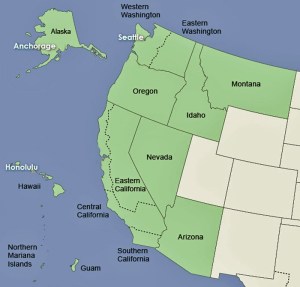
Homestead exemptions protect a principal residence when someone files bankruptcy.
But what about second homes and rentals? Are they toast in bankruptcy?
Not necessarily. Like many legal questions, it depends.
Homes protected from creditors
The legal system has a reverence for the home debtors live in. It recognizes the importance of shelter and stability to families and communities. So the rights of homeowners are preferred over the rights of the homeowner’s creditors in the case of residences.
That preference is expressed as a homestead exemption.
Rentals and vacation homes
But when it comes to vacation homes or rental properties, it’s a different story.
When balancing the needs of person who needs relief from their debts, and the rights of their creditors, a second parcel of property is just another asset.
So, what happens to that second piece of real estate in bankruptcy depends:
- on which chapter of bankruptcy you choose,
- what the equity in the property is, and, importantly,
- where you live.

If you’re lucky enough to live in the 9th Circuit and file Chapter 13, the rules support keeping all of your property.
We’re going to look at the issue assuming you’ve chosen Chapter 13.
The problem with property
When the debtor owns properties other than his home, two issues arise in Chapter 13.
Equity
One, is there equity in the property that could pay creditors, in whole or in part?
The equity issue simply drives the question of how much creditors are entitled to receive on their debts through the Chapter 13. To confirm a Chapter 13 plan, creditors must receive, over the life of the plan, at least what they would have received had the debtor filed Chapter 7 instead.
Three tests govern how much you must pay in Chapter 13
To keep the second property and confirm a plan, the debtor has to have enough future monthly income to fund a plan giving creditors at least what they would have gotten in Chapter 7. That’s the “best interests of creditors” test for confirmation.
Cash flow
Two, does the property cost more than it brings in.
This is the issue that troubles Chapter 13 trustees and creditors: is it fair for the debtor, who already owes debts he hasn’t paid, to keep a property that costs money to maintain every month.
That operating negative reduces the amount of money available each month that can be paid to existing creditors.
The problem is the same whether the property is a second home, which often brings in little or nothing in the way of cash, or a rental, where the operating expenses exceed the monthly rent.
Another of the confirmation tests in Chapter 13 is that the debtor must be operating in “good faith”. That’s the challenge that trustees and creditors bring when a debtor wants to keep a property that requires regular additional cash: is the debtor treating his creditors in good faith?
Good decision on good faith
The 9th Circuit Court of Appeals flatly rejected the argument that paying the mortgage on a debt secured by something other than the debtor’s homestead was bad faith in Welsh.
…adoption of [the bankruptcy reform bill] forecloses a court’s consideration of … a debtor’s payments to secured creditors as part of the inquiry into good faith under 11 U.S.C. § 1325(a).
Essentially, the court said the bankruptcy system takes debtors as they find them, with non productive properties and all.
Is keeping it wise
Just because you can keep a second piece of real estate doesn’t mean it’s a good choice. But that’s another post for another day.
More
What you think about Chapter 13 is probably all wrong
How to interview a bankruptcy lawyer





